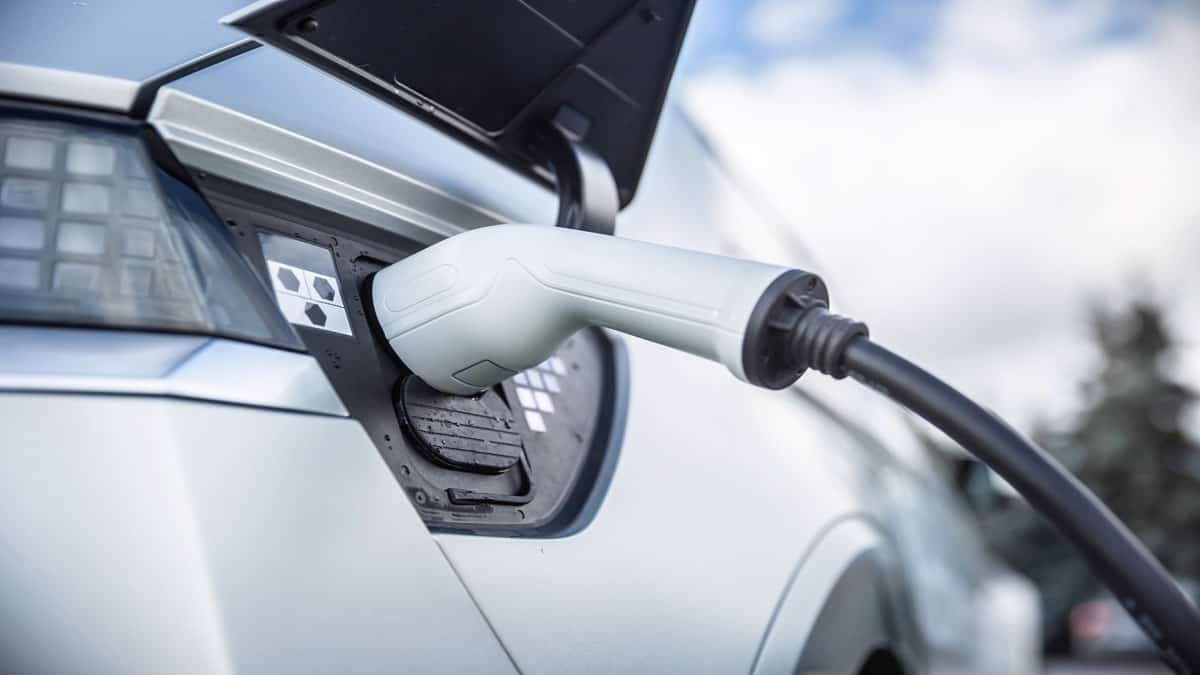THIS POST MAY CONTAIN AFFILIATE LINKS. PLEASE SEE MY DISCLOSURES. FOR MORE INFORMATION.
As the electric vehicle (EV) revolution continues to gain momentum, it’s easy to get swept up in all its hype and gloss over some of the drawbacks.
The promise of a cleaner alternative to gasoline-powered cars is certainly attractive, with no more oil changes or lower emissions.
Still, there may be some pitfalls that you haven’t taken into account when considering an EV.
From fewer available charging stations than gas stations to issues with depreciation, we explore 12 overlooked drawbacks of EVs that could leave you feeling frustrated after investing your hard-earned money.
#1. Dependency On Charging Infrastructure

Owning an electric vehicle relies heavily on the availability of charging stations. If you don’t have access to a home charger, you’re at the mercy of the public charging infrastructure, which may not always be reliable or conveniently located.
This can create uncertainties in travel planning.
#2. Cold Weather Performance

Electric vehicles can experience reduced battery efficiency and overall range in frigid climates due to temperature-related issues.
Cold weather can negatively impact the driving experience, especially for those living in regions with harsh winters.
#3. Lack Of Available Stock

In some regions, finding available stock of electric vehicles for test drives and immediate purchase can be challenging.
This limited availability can delay potential buyers’ decision-making process, as they may need to wait for new shipments or production runs.
#4. Decrease In Range With Extra Load

Adding extra weight to an electric vehicle, such as a trailer or roof box, can significantly reduce its driving range.
This limitation can be inconvenient for those who require additional cargo space, as it means trade-offs between carrying capacity and range.
#5. Longer Refueling Times

Charging an electric vehicle is typically slower than refueling a gas vehicle. While most EV owners charge at home overnight, this can be inconvenient for those with busy schedules, long trips, or no access to at-home charging.
#6. Insufficient Charging Infrastructure

Many areas, especially in rural or less-developed regions, lack an adequate charging infrastructure for electric vehicles.
This deficiency can make long-distance travel or even daily commuting more challenging.
#7. Limited Driving Range

Electric vehicles typically have a more limited driving range than their gasoline counterparts.
While the range of EVs has been improving, the limited range can be a significant disadvantage for those who frequently need to cover long distances without access to charging points along the way.
#8. Environmental Concerns

While electric vehicles produce zero emissions at the tailpipe, manufacturing lithium-ion batteries and the source of electricity generation can still have environmental impacts.
These concerns may offset some of the environmental benefits of EVs and serve as a reminder that EVs are not entirely without environmental impact.
#9. Issues With Software And Hardware

Electric vehicles rely heavily on complex software and hardware systems, which can sometimes be prone to technical issues.
Software bugs or hardware malfunctions may necessitate visits to the dealership, software updates, or even temporary inconveniences for the owner, highlighting the need for continuous improvement in EV technology.
#10. Limited Service Centers

The network of service centers and trained technicians for electric vehicles is less extensive than that for traditional vehicles.
This can lead to longer waiting times for repairs and maintenance and potential difficulties in finding a nearby service center, particularly in rural or less populated areas.
#11. Higher Upfront Cost

Electric vehicles typically have a higher initial purchase price than their gasoline counterparts. This is primarily because of the expensive lithium-ion battery technology, which constitutes a significant portion of an EV’s cost.
While lower operating expenses may offset this cost difference in the long run, it remains a barrier for budget-conscious consumers.
#12. Limited Model Availability

Despite the growing popularity of electric vehicles, the variety of available models and features is still more limited than traditional gas-powered vehicles.
Finding an EV that perfectly aligns with individual preferences and requirements can be challenging.
Are Hybrids Worth It?

Many people think buying a hybrid car will save them money.
They base this on the fact they will buy less gas, which means saving money.
But they don’t take into account the higher cost of a hybrid vehicle. Can this difference make a hybrid more costly to own?
Never Have A Car Payment Again

Do you hate having a car payment?
If you are like most people, the answer is yes.
The good news is, with a little planning, you can buy your next car and not have a monthly payment!
HOW TO NEVER HAVE A CAR PAYMENT AGAIN
Are Hybrids Good For The Environment

You hear that hybrids and even electric cars are a smarter choice for the planet.
But is this really the case?
Here is how much these vehicles actually pollute the earth.
FIND OUT IF HYBRIDS ARE GOOD FOR THE ENVIRONMENT
Save Money on Car Insurance

It’s very easy to save money on car insurance, thank to technology.
If you haven’t shopped around in the past year, you are likely paying more than you should.
Here are some simple hacks to slash your insurance bill.
BEST WAYS TO SAVE MONEY ON CAR INSURANCE
Good Money Habits To Have

In order to get ahead financially, we need to develop good habits. Most people talk about bad money habits to get rid of.
Here are good money habits you need to follow if you want to take the next step financially.
17 GOOD MONEY HABITS TO DEVELOP
I have over 15 years experience in the financial services industry and 20 years investing in the stock market. I have both my undergrad and graduate degrees in Finance, and am FINRA Series 65 licensed and have a Certificate in Financial Planning.
Visit my About Me page to learn more about me and why I am your trusted personal finance expert.

